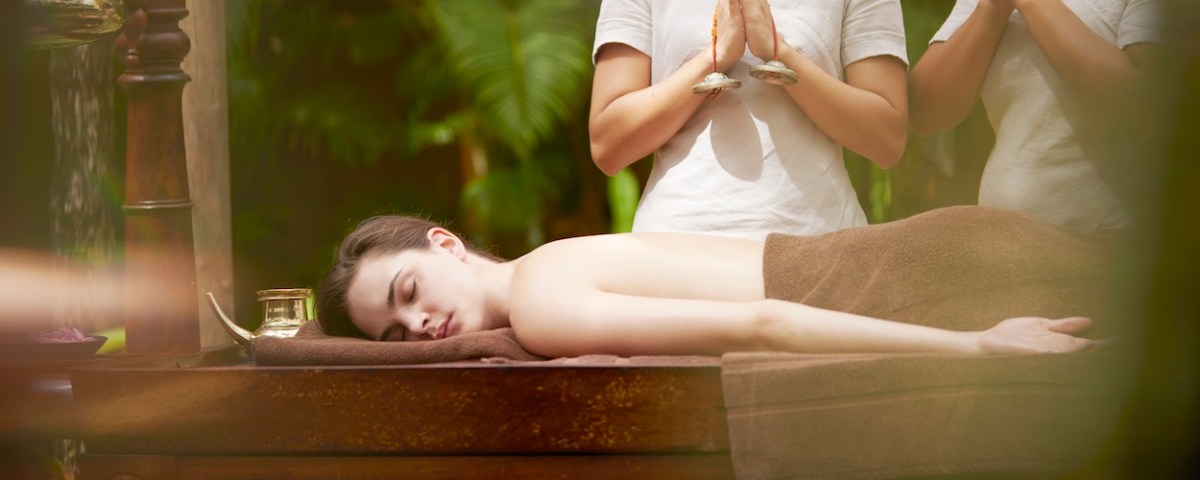Whether your destination of choice is a villa on a sandy cove surrounded by turquoise water or an ultramodern downtown hotel set against a mountain skyline—the idea of visiting somewhere breathtaking just to sleep through it may baffle some frugal travelers. Yet the need to catch up on shut-eye is increasingly pervasive in rising generations. About 35 percent of adults report getting fewer than seven hours of sleep per night, according to the American Sleep Association.
Springing from this widespread epidemic of sleep deprivation, a recent surge of public interest has started to manifest itself in various forms, including Gwyneth Paltrow’s clean sleep movement as well as exciting innovations in sleep technology. But the hospitality industry is also capitalizing on society’s increasing need for better sleep. Hotels and spas worldwide now use sleep as a selling point, advertising overnight packages or even weeklong retreats designed for ultimate relaxation.
For example, guests at Fairmont Pacific Rim in Vancouver who opt for an overnight Beauty Sleep package are greeted by a bottle of sparkling wine, then treated to an hour-long massage. They receive luxurious turndown services including therapeutic mineral bath salts and often take their breakfast in bed. Fairmont PR manager Kaylyn Storey says the Beauty Sleep package is a favorite for busy moms or women looking for relaxing weekend getaways.
In contrast, the Shanti Sleep experience at Shanti Maurice in Mauritius lasts up to seven nights and caters particularly to yogis looking for complete spiritual rejuvenation. Rather than a bottle of sparkling wine, guests find a tray of ripe fruit awaiting their arrival. In addition to personal exploration time around the island, each day consists of yoga and meditation sessions led by Ayurvedic doctors, all designed to induce greater joy, restorative sleep, and enhanced balance.
The costs for these experiences range from a few hundred dollars for a couple of overnight guests to thousands per person per night. For all but the most affluent consumers, such a steep price tag is sure to beg the question, Is it worth it?
To answer this question, I went straight to the source and asked someone with first-hand experience of a luxury sleep retreat. Travel writer and photographer Leanne Bracey visited Shanti Maurice earlier this year to experience their Shanti Sleep package, and soon after her visit she wrote in detail about the retreat’s mesmerizing treatments.
Between magnesium massages and centered breathing exercises, Bracey’s account sounds like an undoubtedly blissful escape from the rest of the world. Indeed, one of the greatest benefits of her experience, Bracey says, was “being able to get away from it all in another country with a bit of a time difference.” She points out that the very act of going somewhere for the distinct purpose of sleeping helped her feel more justified in putting sleep first during that time.
Sleep expert for Mattress Firm Parinaz Samimi, MPH, says that feeling of seclusion may help some people who particularly struggle to shut themselves off at the end of the day. “The feeling of being removed from chaos can be a powerful way to promote greater relaxation,” Samimi says.
But Samimi also warns retreating to a hotel or spa to address serious sleep concerns may not have the long-lasting effects that other, more cost-effective solutions may provide. “Before spending hundreds or even thousands of dollars on a trip,” she says, “you should consider solutions that may not even cost you a cent.”
Anyone struggling to sleep well should first evaluate possible causes in their daily habits and lifestyle, Samimi advises. For instance, try cutting out the afternoon coffee or restricting your smartphone use after dinner time. Lowering your room temperature could also improve your sleep quality. Even purchasing a new mattress, which may cost equivalent to a hotel sleep package, is a solution that can last years longer than an overnight or weekend trip.
And for those with sleep issues stemming from medical causes such as sleep apnea, Samimi recommends consulting with a medical professional.
Bracey admits her primary complaint about the retreat was that it passed too quickly. “Had I had longer,” she says, “I would’ve taken more away from it.”
Even so, Bracey sees the potential for sleep retreats to instigate lasting change—“if you don’t have to commute and if you stay in the same house all the time.” For her, continuing the routine she followed at Shanti Maurice isn’t possible, because she has a daily commute, lives part-time with her parents, and travels frequently.
But for individuals who have a little more freedom and flexibility to adopt new routines as needed, maybe a trip dedicated to improving sleep can be the perfect instigator for establishing better lifelong habits.
This article appeared in an InsideHook newsletter. Sign up for free to get more on travel, wellness, style, drinking, and culture.

























